As a veteran in the coffee industry for over 20 years, I have come to appreciate the importance of a well-balanced cup of coffee. A perfect cup of coffee should be rich in flavor, aroma, and body, without any overpowering tastes. However, one issue that can ruin your coffee experience is sourness.
When it comes to moka pot brewing, sour coffee is a common problem that affects the taste and quality of the coffee. It’s essential to learn how to avoid sourness in moka pot coffee to ensure that you can enjoy a delicious and satisfying cup of coffee every time.
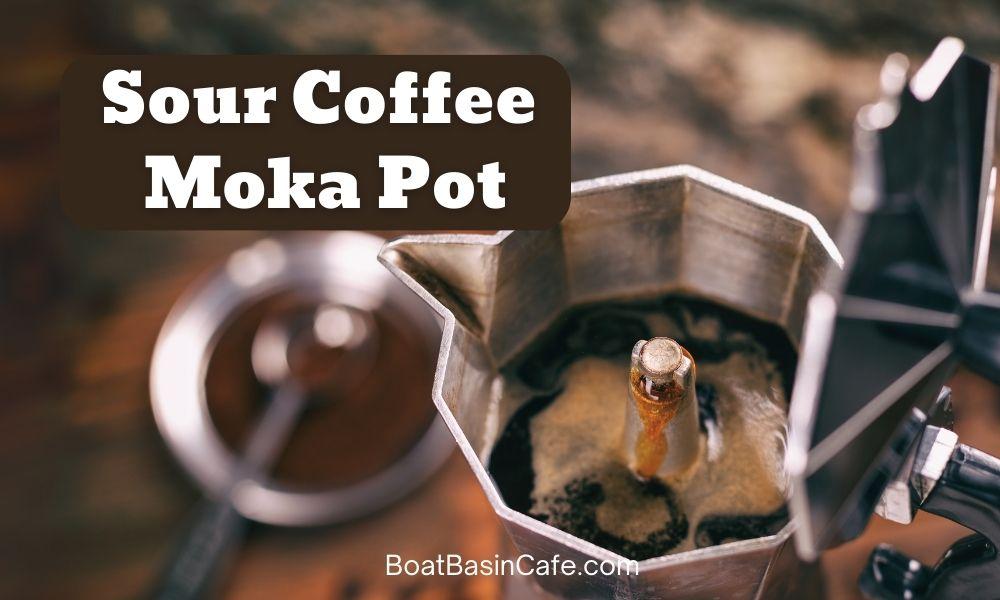
In this article, we will explore the causes of sour coffee from a moka pot and provide practical solutions to help you fix this issue.
Understanding Sour Coffee
Sour coffee is a common problem that can occur when brewing coffee in a moka pot. It’s characterized by a sharp, acidic taste that can be unpleasant and overwhelming.
Sourness is a problem for moka pot coffee because it detracts from the overall taste and quality of the coffee. In some cases, it can be so pronounced that it renders the coffee undrinkable.
Acidity is an essential component of coffee, and it plays a crucial role in determining the flavor and taste of the coffee. Some coffees are naturally more acidic than others, depending on the type of coffee bean, the growing conditions, and the roasting process. For example, African coffees tend to be more acidic than South American coffees.
When it comes to moka pot brewing, several factors can contribute to sourness in the coffee. One of the most common causes is the brewing temperature. If the water is too hot, it can over-extract the coffee, leading to sourness. On the other hand, if the water is not hot enough, it can under-extract the coffee, resulting in a sour taste.
Grind size is another critical factor that can affect the taste of moka pot coffee. If the coffee is ground too finely, it can over-extract and cause the coffee to taste sour. If the coffee is ground too coarsely, it can under-extract and result in a sour taste.
Water quality is also essential when brewing moka pot coffee. Hard water, for example, can affect the taste of the coffee, making it more acidic. Using filtered water can help prevent this issue.
How to Avoid Sour Coffee in a Moka Pot
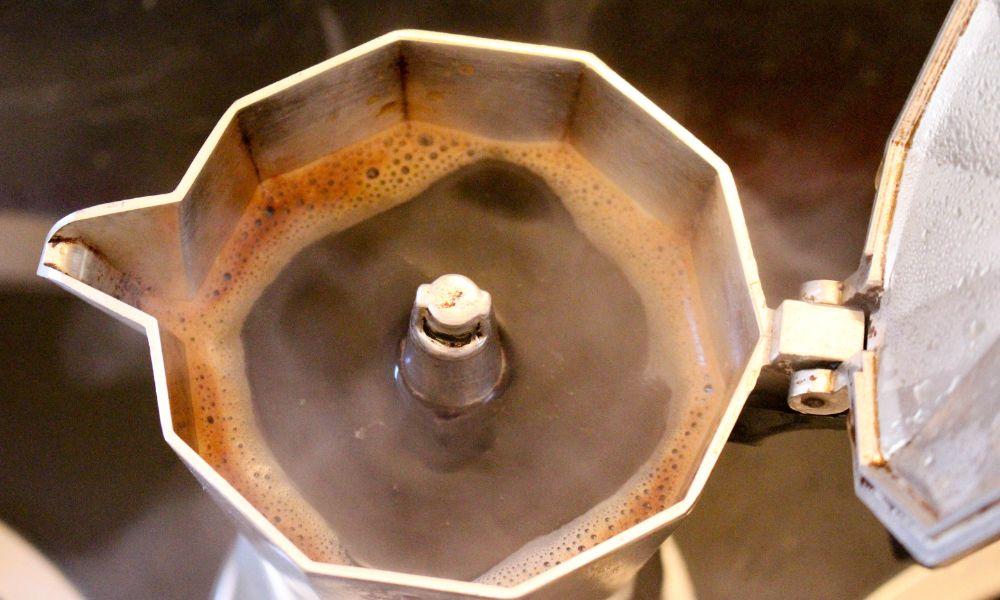
Brewing coffee in a moka pot can be a simple and satisfying way to enjoy a delicious cup of coffee. However, as we discussed earlier, sourness can be a common issue that affects the taste and quality of the coffee. In this section, we will explore practical steps that you can take to avoid sourness and achieve a well-balanced flavor profile in your moka pot coffee.
Step 1: Select the right coffee beans
Choosing the right coffee beans is crucial for achieving a great-tasting cup of moka pot coffee. Look for high-quality coffee beans that are freshly roasted and have a medium-fine grind. Ideally, you should use beans that are specifically labeled for moka pot brewing, as they are typically roasted and ground to suit this brewing method.
Step 2: Add water and coffee
Fill the bottom chamber of the moka pot with cold water up to the level indicated on the pot. Next, add the ground coffee to the filter basket in the middle chamber. Avoid packing the coffee too tightly, as this can lead to over-extraction and sourness.
Step 3: Heat the water
Place the moka pot on a medium heat setting and wait for the water to heat up. Keep an eye on the pot, as you don’t want the water to overheat, which can lead to sourness. Once the coffee starts to flow, reduce the heat further to prevent over-extraction.
Step 4: Serve and enjoy
Once the coffee has finished brewing, remove the pot from the heat source and serve the coffee immediately. Enjoy your delicious cup of moka pot coffee!
To avoid sourness in moka pot coffee, you can adjust the brewing factors, such as the temperature, grind size, and water quality. Here are some tips:
- Use filtered water to avoid hard water that can affect the taste of the coffee.
- Brew the coffee at a temperature between 195-205°F (90-96°C) to prevent over-extraction and sourness.
- Use a medium-fine grind to ensure that the coffee is extracted correctly and avoid sourness.
- Avoid overheating the water, as this can cause the coffee to over-extract and taste sour.
In addition to these tips, it’s also essential to avoid common mistakes when brewing moka pot coffee, such as:
- Reusing coffee grounds, which can result in over-extraction and sourness.
- Using stale coffee, which can affect the taste of the coffee and make it more acidic.
- Cleaning the moka pot infrequently, which can result in residue buildup that affects the taste of the coffee.
Troubleshooting Sourness in Moka Pot Coffee
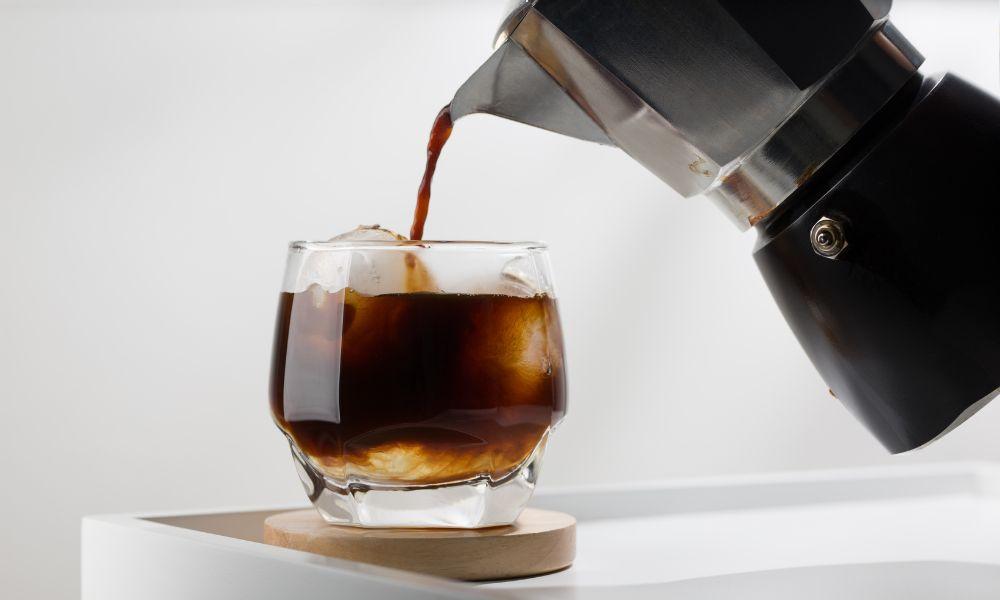
Sourness is a common problem that can occur when brewing coffee in a moka pot. It can be frustrating to experience this issue, especially if you’re a coffee lover who appreciates a well-balanced cup of coffee. However, the good news is that sourness in moka pot coffee can be fixed by identifying the potential causes and making small adjustments to the brewing process. In this article, we will explore the potential causes of sourness in moka pot coffee and provide practical solutions to help you troubleshoot and fix this issue.
Potential Causes of Sourness in Moka Pot Coffee
Incorrect grind size
One of the most common causes of sourness in moka pot coffee is the incorrect grind size. If the coffee is ground too finely, it can over-extract, resulting in sourness. On the other hand, if the coffee is ground too coarsely, it can under-extract, resulting in a sour taste.
Overextraction
Overextraction occurs when the coffee is brewed for too long or at too high a temperature. This can cause the coffee to become too bitter and sour.
Water temperature
If the water temperature is too low, it can cause under-extraction and sourness. If the water temperature is too high, it can lead to over-extraction and bitterness.
Stale coffee
Using stale coffee can also result in a sour taste. Coffee loses its freshness over time, and if it’s not stored properly, it can become stale and affect the taste of the coffee.
Troubleshooting and Fixing Sourness in Moka Pot Coffee
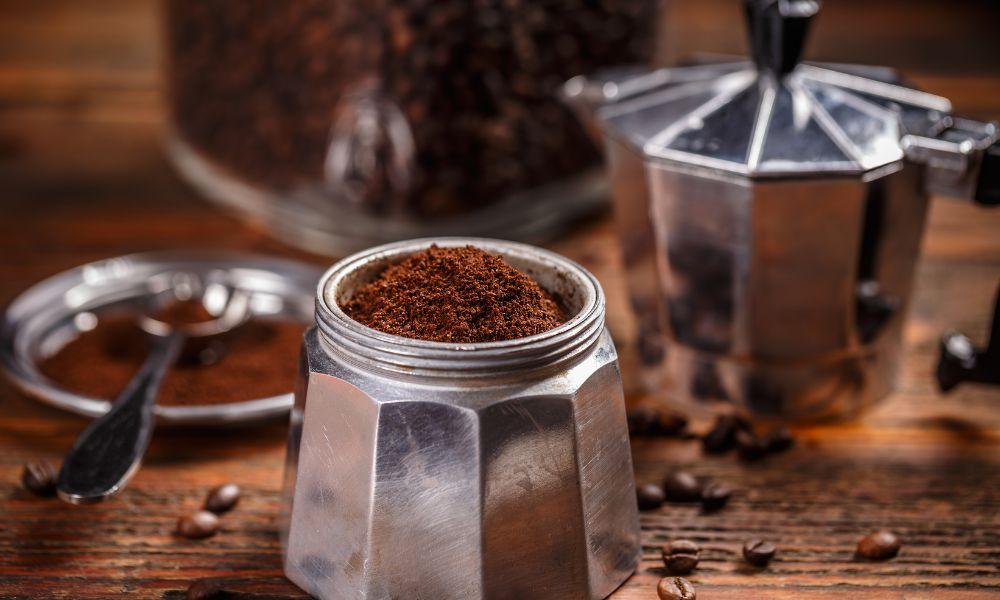
Adjust the grind size
To fix sourness caused by an incorrect grind size, adjust the grind to a medium-fine size. This size will ensure that the coffee is extracted correctly and will prevent over-extraction and under-extraction. If the coffee is still sour, adjust the grind size slightly to a finer or coarser setting until you find the right balance.
Adjust the brewing time
If the coffee is overextracted, try reducing the brewing time or using a lower heat setting. If the coffee is under-extracted, try extending the brewing time or using a higher heat setting.
Adjust the water temperature
If the water temperature is too low, try using hotter water to brew the coffee. If the water temperature is too high, try using slightly cooler water or reducing the heat setting.
Use fresh coffee beans
If the coffee tastes sour due to stale coffee beans, try using freshly roasted coffee beans. Fresh coffee beans will have a better flavor profile and will not be as acidic as stale coffee beans.
Small Adjustments That Can Improve the Taste of Moka Pot Coffee
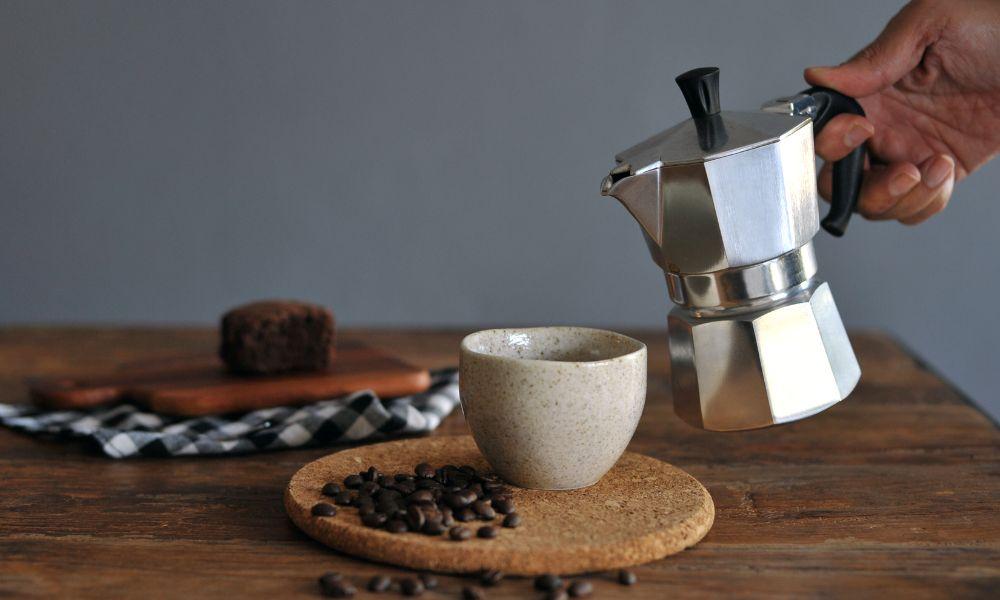
Preheat the water
Preheating the water before adding it to the moka pot can help ensure a consistent water temperature and prevent sourness.
Use filtered water
Using filtered water can help ensure that the water quality is consistent and can prevent hard water from affecting the taste of the coffee.
Clean the moka pot regularly
Cleaning the moka pot regularly can help prevent residue buildup that can affect the taste of the coffee.
Use the right amount of coffee
Using the right amount of coffee is crucial for preventing under-extraction or over-extraction. Use the recommended amount of coffee for your moka pot, and adjust the amount as needed based on your taste preference.
Experiment with different coffee beans
Try experimenting with different types of coffee beans to find the perfect balance of flavor and acidity for your taste preference.
Conclusion
In this article, we have discussed the common problem of sourness in moka pot coffee and provided practical solutions to help you prevent this issue. We identified the potential causes of sourness, such as incorrect grind size, overextraction, water temperature, and stale coffee. We also discussed how to troubleshoot and fix each of these issues.
We provided tips for selecting the right coffee beans for moka pot brewing and discussed common mistakes to avoid when brewing moka pot coffee. Additionally, we discussed small adjustments that can improve the taste of your coffee, such as preheating the water, using filtered water, cleaning the moka pot regularly, and experimenting with different coffee beans.
The key takeaways from this article are that achieving a well-balanced cup of moka pot coffee is all about finding the right balance between the brewing factors and personal taste preferences. It’s essential to adjust the grind size, brewing time, water temperature, and coffee bean selection to avoid sourness and achieve a delicious and satisfying cup of coffee.
We encourage readers to experiment with their brewing process and make small adjustments until they find the perfect balance of flavor and acidity for their taste preferences. With some patience and experimentation, anyone can enjoy a delicious and satisfying cup of moka pot coffee every time.
FAQs
What is the best coffee grind size for moka pot brewing?
The best coffee grind size for moka pot brewing is a medium-fine grind. This size will ensure that the coffee is extracted correctly and will prevent over-extraction and under-extraction, which can cause sourness.
How long does it take to brew coffee in a moka pot?
The brewing time for moka pot coffee can vary depending on the size of the pot and the heat source. Generally, it takes around 5-10 minutes to brew a cup of moka pot coffee.
What is the ideal water temperature for moka pot brewing?
The ideal water temperature for moka pot brewing is between 195-205°F (90-96°C). This temperature range will prevent over-extraction and sourness and will help to achieve a well-balanced cup of coffee.
How can I tell if my moka pot coffee is overextracted?
Overextracted coffee can taste bitter and sour. If your moka pot coffee has a harsh or unpleasant taste, it may be overextracted. Adjusting the brewing time or using a lower heat setting can help prevent overextraction.
Can I use any type of coffee bean for moka pot brewing?
While you can use any type of coffee bean for moka pot brewing, it’s best to use high-quality coffee beans that are freshly roasted and have a medium-fine grind. Using beans that are specifically labeled for moka pot brewing can also help ensure that the beans are roasted and ground to suit this brewing method.






